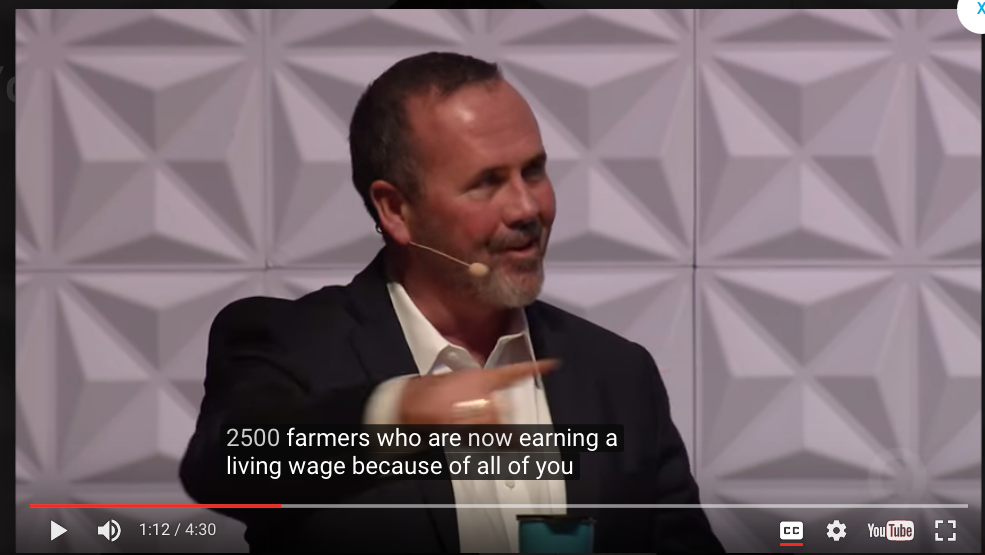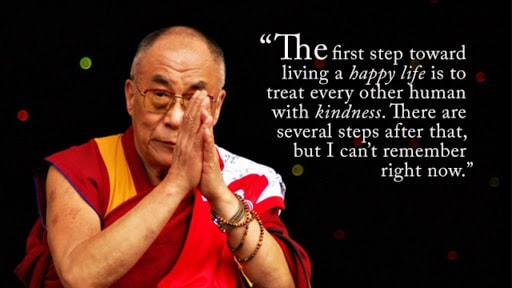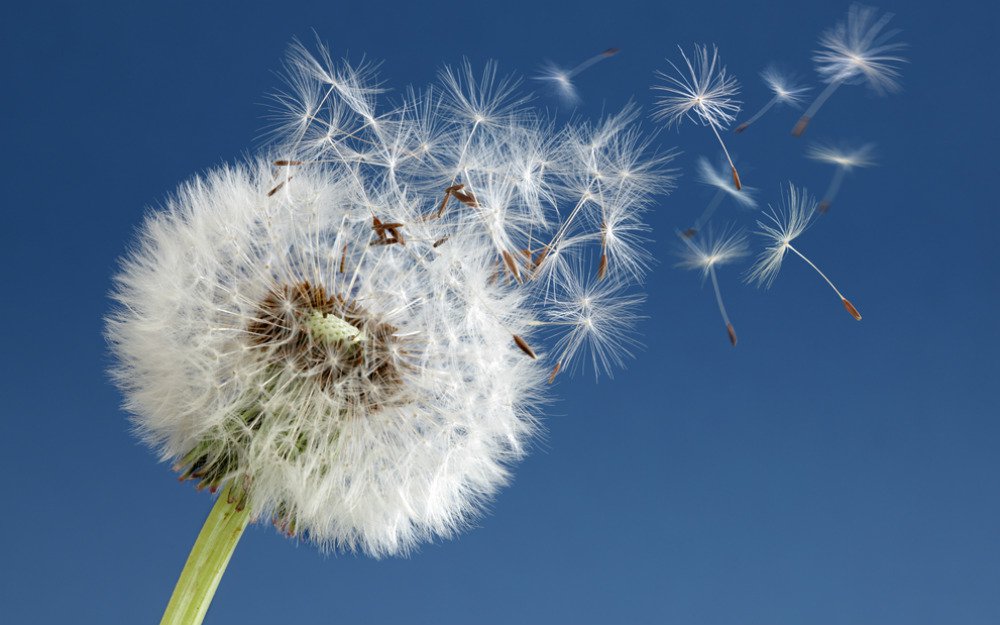“God loves each one of us |
God is not concerned about which soil the seed falls on because God is confident of the power of the seed. Instead God’s attention is focused on the harvest, the spiritual food that will feed the world. | When we bought our first house I did everything in my power to have that picture perfect green lawn, the kind you see on commercials. No matter how well I seeded, watered, aerated and fertilized, my obsessing never seemed to be enough. Whenever I saw a little yellow dandelion bud, I’d be on my hands and knees digging with great precision in order to keep the root in tact. Yet every now and then, one would slip passed me, and transform into a puffy white bloom. Now at some point in life, an overly imaginative babysitter told a child these cottony puffs were magical, and that if she blew on the bloom her wish will come true. (By the way, this is a lie. And lies are bad.) Dandelion seeds, like urban myths, scatter quickly with very little effort. To date, my wishes have not come true because those pesky seedlings keep landing in my yard like soldiers on D-Day. |
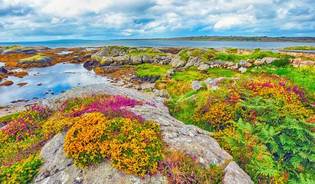
It’s safe to say Jesus is telling us a parable about God (the sower) and our response to God (as the soil). Alone with his disciples, Jesus explains the seed represents the “word of the kingdom.”
Now, I think this is a pretty straightforward story for someone who knows nothing about farming. But it begs the question what kind of farmer would waste seed? Is the word of the kingdom that cheap that God can just toss it into the wind like a dandelion puff?
Even a novice like myself knows that seeds are vulnerable, and susceptible to all sorts of harmful things. Yet they are tough. Some are pretty resilient if not downright defiant (like the damn-de-lion). Fortified with an armor shell, even the tiniest of seedlings can somehow grow a hundred-fold in just a short period of time. Moreover, a seed, which begins the life cycle, can actually move through death as a means to reproduce new life.
In a spiritual sense, they are mysterious and perhaps, I’ll admit, even a little bit magical. So I guess the real question is: what kind of seed would God want to sow liberally?
I believe the answer is love. God’s love to be exact. For divine love is the first and final word of the kingdom of God. Thus Jesus gives the impression that the sower isn’t all that concerned about which soil He allows His seed to take root in. The footpath, the rocks, the weedy soil… they all get a shot.
As my friend Roxy wrote in an email last night, “God isn't content just to sow to the good soil. Though the farmer would want to preserve his seed for the field, God prefers to be prof-li-gate in casting His seed as far and wide as He can - even to those who don't care, or won't respond the way He'd like. This is Grace upon grace. This is especially important since most of us aren't great soil to begin with. It takes a while to cultivate our hearts to be good soil.”
Grace, mercy, forgiveness… these are just some of the fruits born out of God’s love for us. Love is the good news, the Word of God incarnate in Jesus Christ, the very seed of everlasting life. God does not discriminate where this seed is scattered and sown. Thus God doesn’t think twice about grabbing a big handful of love, and liberally throwing it at us to see what it will yield.
My friend Dawn argues, "Just because the soil seems bad doesn't mean some seeds won’t take root." She’s right. We can’t discount what we can’t see in the soil (or on the road or under the rocks). God sees it and that alone is sufficient.
The Burren National Park in County Clare, Ireland is a great example. The name burren literally means, “Rocky place.” On the park’s website it states the area got it’s name “because of its lack of soil cover and the extent of exposed limestone pavement.” Yet despite it’s appearance, it has also been called “fertile rock” because of its mixture of nutrient rich herbs and floral species.”
With its scattered pockets of wet, peaty soil among fissured limestone, Burren is home to twenty-three of Ireland’s twenty-seven unique orchid species, as well as other flora and fauna that grows inside the hidden cracks and crevices of this magnificent place.
Imagine all the stuff we’d miss if we only looked at the good soil. Or if God only sowed love in those who were already good.
The good news is God doesn’t overlook any one of us. God loves us all and wants to be with us. Whoever we are, wherever we are… God has sown into all creation the greatest of his love, Jesus Christ, who took the soil of death itself and harvested everlasting life.
Jesus reminds us the sower throws seed amid the rocky, barren, broken places because God’s vision for the world is often found in strange and broken places. Like pesky dandelion seeds, God’s love floats all over creation, and finds its way into all sorts of nooks and crannies. It’s up to us, the soil, to allow that love to take root.
Our calling is to yield the fruit of love, in spite of our soil condition or any earthly predicament we find ourselves in.
Jesus knows the hard ways of this world. He knows that some of us will reject God’s love with hardened hearts, but even the hardest objects can radiate God's truth and beauty. A diamond is a perfect example. Sadly, too many of us don’t see ourselves as valuable.
Jesus also knows the abundant ways of God. He says some of us will receive God's love and even thrive in it. But when the struggles get real, those people flee. The seed has been planted. So there’s always an opportunity for a new life to sprout even if it’s been dormant for a while.
Some of us will work hard to grow strong in our faith and understanding- but we have to be careful. We are vulnerable too. And the lure of greed and the cares of the world can still overpower us and draw us away from fully relying on God’s abundance.
Novelist Bebe Moore Campbell put it this way, “Some of us have empty barrel faith. Walking around expecting things to run out. Expecting that there isn’t enough air, enough water. Expecting that someone is going to do something wrong. But the God I serve told me to expect the best, that there is enough for everybody.”
God is patient and purposeful; sowing the seed of love anywhere and everywhere because God’s redemptive story can reach everywhere and anywhere we find ourselves. God is not concerned about which soil the seed falls on because God is confident of the power of the seed. Instead God’s attention is focused on the harvest, the spiritual food that will feed the world.
God knows love has power to take root in the harshest ground, but will it bear the fruit of justice, mercy and grace in spite of the terrain? It all depends on how we respond to God.
This week I hope you will take some time to think this parable. As you do, ask yourself if there is any place in your life where you feel God is not present.
Maybe there’s a difficult challenge you’re facing alone. Maybe you have doubts that are causing you to look elsewhere. Maybe you’re stuck in a place you DON’T want God to be present.
Observe the many soils of your life, relationships, and troubles. Then ask yourself if you really believe there is anywhere on that list that God’s seed of love cannot take root and sprout something beautiful and life-giving, thirty, sixty, and hundred-fold?
You shall be perfect as your heavenly Father is perfect. —Matthew 5:48
Jesus is not calling us to live without making mistakes or to achieve some impossible level of perfection. He calls us, as Jack Jezreel—founder of JustFaith Ministries—says, to love without exception. Jezreel reflects on this invitation to wholeness in the Center for Action and Contemplation’s journal Oneing:
"We are either a people who love, embrace, and enter into a caring posture with our family, friends, neighbors, strangers, and even enemies (real or imagined) or we will spend our lives mercilessly trying to define who is lovable and who is not, who is worthy and who is not, who deserves my attention and who does not. Inevitably, we will end up loving people who look like us, think like us, and pledge allegiance to the same flag—and we will exclude the rest. In this truly useless pursuit, we will separate ourselves from God (through tribal worship), from the world’s good (by avoiding healing and restoration), and from our very souls (through self-preoccupation with ego).
"In effect, the wisdom of Jesus describes the powerful, but often neglected, bridge between spiritual insight and social action/real compassion. In fact, the wisdom of Jesus seems to suggest that the link is even more intimate than a bridge; it is the collapse of the two categories altogether. The separation of spirituality from action is a false one. In other words, we are not called to do spiritual practices—prayer, study, meditation, retreat, ritual—and then make our way, now inspired, to the work of mercy and justice. In fact, it might be argued that, if anything, it’s just the reverse: Love those who struggle with poverty and suffer abandonment and the effect is that we will find ourselves on a path that leads to maturity, prayer, wisdom, and Christ-likeness. If, however, we choose to avoid engagement and community with those who suffer, we will certainly live an incomplete life, including an incomplete spiritual life.
"To put it rightly, I think, the practice of prayer and the practice of compassion are both necessary and complementary spiritual practices. . . . We are called to be both activists and mystics, missionaries of love and contemplatives, great lovers and deep thinkers. And, in all of that, the spiritual journey can happen; in all of that, we can be made whole; in all of that, the world can be made whole. . . . Personal transformation and social transformation are one piece. . . .
"The true spiritual quest is not that I become whole. Informed by the belief that the world is birthed by God and is precious and sacred and one, the true spiritual quest is that the world become whole—and we along with it."
Jack Jezreel, “To Love Without Exception,” “Perfection,” Oneing, vol. 4, no. 1 (Center for Action and Contemplation: 2016), 49-50, 52. Learn more about JustFaith Ministries at justfaith.org/about-us/history-mission/.
“Hope is a good thing, maybe the best of things, and no good thing ever dies.” - Stephen King, the Shawshank Redemption
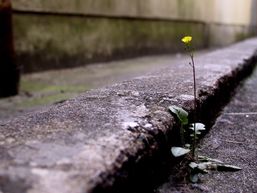
Does this passage remind you of anything? Palm Sunday perhaps? This reading might seem a little out of place in the middle of summer. Especially after having just celebrated Fourth of July and America’s long, drawn out war for freedom and democracy. Yet the battle rages on. So it seems appropriate for us to read this passage from time to time, to be reminded of God’s providence and mercy.
“Rejoice! Your king is riding to you!” writes the prophet Zechariah. Shout out loud! He is triumphant and victorious.” This is the kind of press any world leader would find flattering.
But Zechariah is writing about no ordinary king. This one is different. He rules with righteousness and justice. Relies on God’s strength alone. He is gentle and humble, not proud or boastful. For anyone looking to lead a country or dominate the world, these are good rules for you to follow.
When I think about a king riding into town on a small colt, it’s hard not to envision Jesus parading past a wailing crowd shouting “Hosanna! God save us!” And when I read he will set the prisoners free, I think, that’s Jesus; bringing hope to the hopeless and restoring peace among the nations of the world.
I had a teacher in seminary who taught we shouldn’t be too quick to put Jesus into every story; especially the prophetic texts. Either way Zechariah’s evocative passage is relevant in that it reminds us there is still hope even when we think all hope is lost. And isn’t that Jesus message?
Sure Jesus doesn’t own this universal theme of hope and restoration. Millions of books, songs, and movies have made a fortune on the hope we all cling to in difficult times. One needs to look no further than the movie “The Shawshank Redemption” whose theme line states: “Fear can hold you prisoner. Hope can set you free.”
It’s a fantastic story set in a maximum-security prison, (a great metaphor for all of life’s problems). And it follows a friendship between two men serving life sentences. When the prison system begins to beat down Andy, the newcomer pumps himself up by telling his friend Red, “There’s something inside us that they cannot touch.” When the old man asks what that is, Andy whispers, “Hope.”
When life hurts or dreams fade, we cling to the hope that things will get better. We see this in prisons, in hospitals, in drug rehabs and AA meetings, and in our own homes and workplace. When Jesus rode into Jerusalem, God’s people shouted, “Hosanna!”
They clung to God’s promised hope knowing that without it they would never survive. But who would come to their rescue? A different kind of savior, redeemer, and king. The Roman Empire, like the empires today, used fear to imprison God’s children. But the Messiah, as Zechariah states, imprisons us with hope! Hope never dies.
Hope is the one thing that gets us through our daily life. Every Sunday before worship begins, I hope and pray that you will come to worship with us. I hope that someone who needs to hear God speak to them will be able to hear it from the words that God has put in my heart. More than positive thinking or wishful optimism, hope allows me to soldier onward and upward in my calling.
Without hope, the strongest Christian struggles to grow. Without hope a vulnerable student can get discouraged and drop out of school. Without hope, a fragile addict easily returns to old habits. Without hope, the best parent gives up on a child, married couples decide to divorce, or worse they stay in abusive relationships.
While hope gives us a sense of a brighter tomorrow, it is more than just a nice option that helps us temporarily clear a hurdle. It is a deep desire that a certain thing will happen. Hope is both a promise and a purpose.
Zechariah says the king is coming to you to restore God’s reign throughout all of creation. Whether or not he is talking about Jesus, this prophecy is Messiah’s story. By his words and deeds, his life and his death, Jesus embodied the identity the prophet has painted.
In doing so, Jesus provides a code by which we all are called to live by: a code of peacemaking rather than warmongering, a code of restoring creation rather than destroying it, a code of hope rather than a pit of despair. A code of purpose rather than pointlessness.
To live the Way of Christ is to live in a world that no longer has a need or desire for war; violence will have no place in our hearts or homes; we will no longer be ruled by fear but by God’s unending love, righteousness and peace. We will be restored by the blood of the covenant God has made with his children, and we will live in and live out that covenant accordingly.
Through Jesus, God has come to us…and has handed us the most powerful weapon of all: life over death. Such a victory and promise do not deny death’s reality, for if it did we’d have no need for hope. Instead God uses death to renew and restore life; now and in the world to come. This is the promise we cling to that helps us reclaim the world back to our Creator.
The Resurrection is our hope. It’s the one truth no ruler throughout history has ever been able to recreate. It is the one truth that freed the Apostles to proclaim the Good News. It is the truth that transforms sinners into saints. It’s the truth that keeps us free and prisoners like Andy alive.
At the end of “The Shawshank Redemption,” Andy sends a letter reminding his old friend Red that, “Hope is a good thing, maybe the best of things, and no good thing ever dies.”
No matter how ugly and dark the world can seem Jesus is our true hope, the everlasting bright light that helps us see our way back to God where we find our peace and restoration.
Recently I read about an AP photographer who, shortly after 9/11, was sent to capture images at the site where the World Trade Center once stood. Throughout the first week, every one at Ground Zero was a prisoner of hope, praying that someone might be found alive. As the days passed and that hoped faded, the photographer found it harder and harder to capture images of the rescue workers.
One afternoon, he stood on the sidewalk in what would have been in the shadows of the towers. Tired and spent, his head dropped. There in a crack of a sidewalk littered with a life that once was, he noticed a dandelion had poked its way into the new light.
It wasn’t anything spectacular, just a weed growing out of a crack. With the roar of the machines only a few feet away, the photographer fell to his knees and burst into tears at the realization that life, even in such a place as this, will persist.
Amid the emerging nationalistic fervor and the cries for war that swept the country, one person found a glimpse of God’s great promise in a small, resilient weed on a dirty, unsuspecting sidewalk. Hosanna! Hosanna!
The image he captured that day is a life-giving reminder that we are children of a God who loves us enough to become like us, to answer our cries and rescue us from underneath the rubble of a broken and fallen world. If that isn’t Jesus, then I don’t know what is.
Let us pray: Holy Creator, the world is yours and we are your children. Send us now to be your radiant beams of hope and restoration for our community and for the world; all for the glory of Jesus Christ, the prince of peace, the king of kings, Amen.
Work Cited:
Baard, Rachel, and Trace Haythorn. Feasting on the Word, Year A, Vol. 3. Edited by David L. and Barbara Brown Taylor Bartlett. Louisville: Westminster John Knox, 2011.
McAllister, Stuart. "Cynicism and Hope." Slice of Infinity. Atlanta, July 7, 2017.
Prayer is about changing you, not about changing God.
Prayer is connecting with God/Ultimate Reality. It is not an attempt to change God’s mind about us or about events. Such arrogance is what unbelievers make fun of—and often rightly so. Prayer is primarily about changing our own mind so that things like infinity, mystery, and forgiveness can resound within us. The small mind cannot see great things because the two are on different frequencies or channels. We must match our resonance to Love’s. Like knows like.
Without contemplation, the best you can do is to know by comparison, calculation, and from the limited viewpoint of “you.” Prayer knows reality in a totally different way. Instead of presenting a guarded self to the moment, prayer stops defending or promoting its ideas and feelings, and waits for, expects, and receives guidance from Another. It offers itself naked to the now, so that our inner and aroused lover can meet the Lover. Such prayer takes major surgery of heart, mind, and inner sight. Prayer is about changing you, not about changing God.
From Richard Rohr, daily devotional June 30, 2017
Levi Yitzchok of Berditchev was a nineteenth-century rabbi known for his mastery of an unwieldy Mishnaic teaching. To carry one’s self with the ayin tovah, or the “good eye,” is to see in a certain light the world and everyone in it. One scholar describes it as the choice “to intentionally focus on what is most pure in each person—to see their highest and holiest potential.”
Rabbi Yitzchok was beloved for his good eye, utilized even in cases where virtue seemed entirely wanting and holiness altogether deficient.
As one author describes, “He’d roust the local drunk from his stupor on High Holy Days, seat him at the head of the table, and respectfully ask for his wisdom… He extended his caring to all, whether powerful or impoverished, scholarly or simple, righteous or reprobate.”
In minds often besieged by warring sides, opinions ad nauseam, and defensive or disparaging thoughts, the good eye is indeed a shift of perception.
I appreciate stories that remind me to keep my eyes opened for all that can be seen but can just as easily be missed. How we learn to see the world, how we labor to see and know the world, is profoundly important.
Learning to see with the good eye may well be a difficult feat without mindful effort and practice. But could it not be an entirely transformative art for both the seer and the world being seen?
-thoughts from Jill Carattini, managing editor of A Slice of Infinity at Ravi Zacharias International Ministries in Atlanta, Georgia. July 3, 2017.
Ian Macdonald
An ex-copywriter turned punk rock pastor and peacemaker who dedicates his life to making the world a better place for all humanity.
"that they all might be one" ~John 17:21
~ St. Thomas Aquinas (1225–1274)
Archives
June 2024
May 2024
April 2024
March 2024
February 2024
January 2024
December 2023
November 2023
October 2023
September 2023
August 2023
July 2023
June 2023
May 2023
April 2023
March 2023
February 2023
January 2023
December 2022
November 2022
October 2022
September 2022
August 2022
July 2022
June 2022
May 2022
April 2022
March 2022
February 2022
January 2022
December 2021
November 2021
October 2021
September 2021
August 2021
July 2021
June 2021
May 2021
April 2021
March 2021
February 2021
January 2021
December 2020
November 2020
October 2020
September 2020
August 2020
July 2020
June 2020
May 2020
April 2020
March 2020
February 2020
January 2020
December 2019
November 2019
October 2019
September 2019
August 2019
July 2019
June 2019
May 2019
April 2019
March 2019
February 2019
January 2019
December 2018
November 2018
October 2018
September 2018
August 2018
July 2018
June 2018
May 2018
April 2018
March 2018
February 2018
January 2018
December 2017
November 2017
October 2017
September 2017
August 2017
July 2017
June 2017
May 2017
April 2017
March 2017
February 2017
January 2017
December 2016
November 2016
October 2016
September 2016
August 2016
July 2016
June 2016
May 2016
April 2016
March 2016
February 2016
January 2016
December 2015
November 2015
October 2015
September 2015
August 2015
July 2015
June 2015
May 2015
April 2015
March 2015
February 2015
January 2015
December 2014
November 2014
October 2014
September 2014
August 2014
July 2014
March 2014
February 2014
December 2013
November 2013
September 2013
August 2013
June 2013
May 2013
April 2013
March 2013
February 2013
January 2013
December 2012
October 2012
September 2012
July 2012
June 2012
May 2012
April 2012
March 2012
February 2012
January 2012
December 2011
October 2011
September 2011
July 2011
June 2011
February 2011
December 2010
September 2010
August 2010
July 2010

